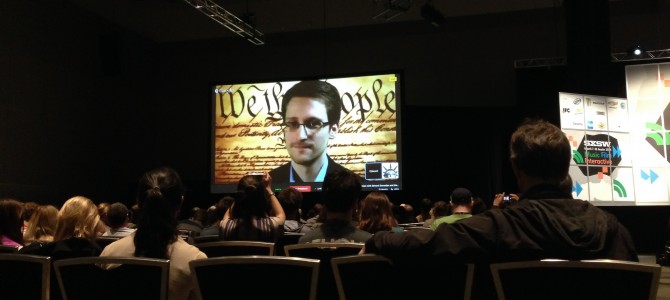Ted Cruz 2013: “…I think Mr. Snowden has done a considerable public service…” 2016: “…Snowden is a traitor…” https://t.co/4lZyL8bZSs
— The Weekly Standard (@weeklystandard) January 14, 2016
At first glance, the above quotes appear to be a clear case of Ted Cruz vs. Ted Cruz on Snowden. It’s likely that Marco Rubio will bring up his flip flop at the GOP debate tonight. And I have little doubt Cruz, like all candidates running for the presidency, are capable and willing to shift positions for expediency.
It’s plausible that Cruz was offering conservative voters what he believed they wanted to hear in each of these cases. You’ll recall that in 2013 there was still a lot of talk about a Republican shift towards libertarianism.
But, technically speaking, one can believe both of those statements are true simultaneously.
Cruz tells the New York Times that “it is now clear that Snowden is a traitor, and he should be tried for treason.” By adding “now,” Cruz gives himself the space needed to contend that evidence has changed his perspective on Snowden. In The Blaze interview from 2013, Cruz also left open the possibility with, “We need to determine…”
‘I don’t know if what Mr. Snowden has said is true or false,’ Cruz said during an event hosted by TheBlaze in Washington. ‘We need to determine that. We need to determine what his motives were, whether he was telling the truth.’
He continued, ‘If it is the case that the federal government is seizing millions of personal records about law-abiding citizens, and if it is the case that there are minimal restrictions on accessing or reviewing those records, then I think Mr. Snowden has done a considerable public service by bringing it to light.’
In 2015, Cruz threaded these concerns, backing Rand Paul’s filibuster of the NSA’s bulk data collection found in the Patriot Act’s Section 215, though he also supporting the USA Freedom Act as it was written.
Opposing the NSA domestic spying doesn’t preclude a person from viewing Snowden as a traitor. Not only because he probably violated the Espionage Act by stealing state secrets vital to national security, but because he chose the worst kind of anti-American polemicists as his champions (should we feel comforted that The Intercept’s editor has access to sensitive national security documents in addition to the NSA?) and decided to level his criticism of the U.S. government under the protection of authoritarians in Moscow and China. These aren’t the actions of someone concerned with liberty.
But, as Cruz initially argued, the American people did not comprehend the extent of a data mining operation that was (and is) broader and more invasive than anyone had reported. Snowden helped spur a debate about the constitutionality and usefulness of bulk surveillance. Voters can be critical of a domestic government spying and Snowden. (Just as they can believe the United States has no business nation-building and that Islamists are civilization’s greatest threat.)
Not that they hold this opinion, mind you. A majority of Americans (an overwhelming number of Republicans) believe Snowden should be tried for treason. No candidate running on the GOP ticket is going to make this argument. They could. They should. But they won’t.









